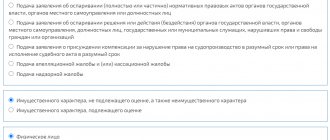So, the trial in the case of non-payment of financial obligations has been completed, and a writ of execution has been received. What to do next is a question that concerns both the plaintiff and the defendant: now debt collection can pass into the hands of official bodies represented by bailiffs. But for this to happen, the plaintiff must take certain actions: the writ of execution itself does not initiate proceedings. Don’t worry: the situation seems difficult, but, like almost any difficulty, there is a way out. Let's talk about what to do after receiving IL and how to get out of the situation in the most reasonable way.
What is a writ of execution
First, it’s worth understanding what a writ of execution is. This is a document that is issued by the court after it makes a decision on the case. Depending on which specific authority issued the IL, its form may vary, but the essence remains the same: it is a legal confirmation of a court decision. It describes the requirements that the defendant must fulfill in accordance with the court's verdict. As a rule, we are talking about paying the plaintiff money: this means not only loans and other obligations that were not fulfilled on time, but also, for example, compensation for moral and physical harm.
What should be included in a preliminary appeal?
A preliminary appeal follows the same rules as a regular appeal, but some points can be skipped.
What to indicate:
- the name of the court where you are addressing the complaint;
- your initials, procedural status, address;
- an indication of the court that made the decision and the decision itself;
- reasons why you consider the decision to be untenable and references to legal norms;
- list of attached documents;
- signature.
What happens after receiving IL
The plaintiff receives the writ of execution. This happens as soon as the court decision comes into force, sometimes immediately after the hearing. Occasionally, the court immediately transfers the IL into the hands of the bailiffs, but this rarely happens, especially when it comes to loans. As a rule, the sheet ends up in the hands of the plaintiff - the creditor. This document allows you to open enforcement proceedings and begin the procedure for collecting the required amount from the borrower. It is valid for three years from the moment the court decision enters into legal force: during this time you should contact the relevant authorities.
Lost the trial? Legal consultation WhatsApp +79169906144
Lost the case in court! What to do?
The trial court is not the end. After it come the cassation and supervisory, and if you applied to the arbitration, then before the cassation comes the appeal. In Moscow, cassation complaints are handled by the board of the Moscow City Court - there are such boards in all regions, districts, and territories. You need to send your complaint there.
The complaint is filed through the court of first instance, the filing period is 7 days in a criminal case, 10 days in a civil case. It happens that the text of the verdict is not immediately issued, but there is no need to wait for all the papers: you have the legal right to file a “preliminary complaint” without a reasoning part, it is also called a short one, and send the reasoning part later. Such preliminary complaints make the same arguments as in the trial court; it is useful to indicate any violations of laws that you or your lawyer have noticed, including ethical ones.
Where does the plaintiff apply?
The plaintiff is free to independently choose how to dispose of the received writ of execution. He can send it to the Federal Bailiff Service (FSSP) to initiate enforcement proceedings, as well as contact the defendant’s place of work or the organization where his accounts are opened. Let's consider each of the three options separately.
In the FSSP
Most often, the plaintiff applies to the Federal Bailiff Service at the place of registration of the defendant, providing a writ of execution and an application to initiate enforcement proceedings. If the debtor is a legal entity, you will also need an extract from the Unified State Register of Legal Entities. In some cases, you may need other papers that can speed up the process: for example, information about the defendant’s financial situation and whether he has property that can be sold. Sometimes the plaintiff may request that the defendant's property be seized. After this, the bailiffs will initiate enforcement proceedings and begin the collection procedure.
To a financial institution
The plaintiff can try to collect the funds on his own by contacting the bank where the defendant’s accounts are opened. This can only be done if there is information that the borrower has an open account with this particular financial institution. A statement must also be attached to the writ of execution. As a rule, if the documents are drawn up correctly, the bank does not have the right to refuse to write off funds from the defendant’s accounts.
At the defendant's place of work
If the amount of debt does not exceed 100 thousand rubles, the plaintiff can also contact the organization where the defendant works and demand to recover funds from his salary. In this case, the writ of execution is sent by registered mail with notification of receipt, with details attached for transferring the amount of debt. However, this and the previous options are used less often than contacting the FSSP. As a rule, it is easier for the plaintiff to send a writ of execution to the bailiffs, so that they themselves carry out the collection procedure, contact the defendant at work or at the institution where his accounts are opened. If the plaintiff is a bank or other financial organization, then sometimes it entrusts the collection to its lawyers, but even in this case, enforcement proceedings are the most likely outcome of the situation.
How to execute a court decision? Everything complicated in simple words
And so, let's deal with an important question,
How to execute a court decision?
If your case is considered by a court of general jurisdiction, the court decision will enter into legal force 10 days from the date of its issuance, if by an arbitration court - after a month. If the defendant files a complaint against the court's decision, the decision will come into force after consideration of the complaint - of course, unless it is canceled and the case is not sent for a new trial to the court of first instance.
The Federal Bailiff Service of Russia is the only enforcement agency in the Russian Federation and carries out the functions of compulsory execution of judicial acts, acts of other bodies and officials who, in the exercise of powers established by federal law, are given the right to impose on individuals and legal entities, the Russian Federation, constituent entities of the Russian Federation Federations and municipalities are obliged to transfer funds and other property to other citizens, organizations or the relevant budgets, or to perform certain actions in their favor or to refrain from performing these actions.
After the court decision enters into legal force, the plaintiff is issued a writ of execution to enforce the decision. If at a court hearing you file a petition to send a writ of execution for compulsory execution, the court will independently send it to the appropriate department of bailiffs. In all other cases, the writ of execution will be handed to you or sent to you by registered mail. If the decision is subject to immediate execution, the writ of execution is issued immediately, without waiting for the court decision to enter into legal force.
According to Article 36 of the Law “On Enforcement Proceedings,” a two-month period is established during which the requirements contained in the enforcement document must be fulfilled.
This period is traditional for legislation on enforcement proceedings.
The order of the bailiff on the execution of certain enforcement actions must be executed within fifteen days from the date of its receipt by the bailiff department.
The legislator separately stipulates the commencement of fulfillment of the requirements of executive documents for the reinstatement of an illegally dismissed or transferred employee.
Enforcement actions in this case must be started no later than the first working day after the date of receipt of the writ of execution by the bailiff department.
Article 211 of the Code of Civil Procedure of the Russian Federation establishes that a court order or court decision on: collection of alimony is subject to immediate execution; payment of wages to the employee for three months; reinstatement at work; inclusion of a citizen of the Russian Federation in the list of voters and referendum participants. Thus, immediate execution within the framework of enforcement proceedings means the performance of enforcement actions immediately, without giving the debtor time for voluntary execution.
Despite the fact that the law established a two-month period during which the requirements contained in the executive document must be fulfilled, it does not establish sanctions for missing the specified period. In addition, the expiration of the deadlines for carrying out enforcement actions and applying compulsory enforcement measures is not a basis for termination or completion of enforcement proceedings.
According to the Code of Civil Procedure of the Russian Federation, if a court decision has entered into legal force, the defendant has an obligation to fulfill it. Of course, you can wait patiently for the debtor to compensate for the damage caused, but then you take a little risk: the law establishes a three-year period for presenting a writ of execution for forced execution. Missing a deadline in accordance with Article 31 of the Federal Law “On Enforcement Proceedings” entails refusal to initiate enforcement proceedings.
It is more correct to take a different route - seek help from the bailiff service in
The parties to enforcement proceedings are the debtor and the claimant. The bailiff at this stage of the judicial process acts on behalf of the state, since it is the state that has taken upon itself the responsibility of administering justice, and is not interested in executing enforcement proceedings in favor of any of the parties, but performs its duties by virtue of the law. He is obliged to use the rights granted to him in accordance with the law and not to allow his activities to infringe upon the rights and legitimate interests of citizens and organizations.
If the debtor or claimant knows the grounds for challenging the bailiff, they can file an application addressed to the senior bailiff of the bailiff division before the commencement of enforcement actions, except in cases where the existence of grounds for challenge became known after the commencement of enforcement actions . The challenge must have serious grounds and cannot be filed only because, in your opinion, the bailiff does not have sufficient qualifications or is simply not sympathetic to you. The issue of recusal of a bailiff is resolved by the senior bailiff. Refusal to satisfy the challenge may be appealed in court within 10 days.
The bailiff is obliged to provide the parties to the enforcement proceedings or their representatives with the opportunity to familiarize themselves with the materials of the enforcement proceedings, make extracts from them, and make copies from them. The bailiff considers the statements of the parties regarding enforcement proceedings and their petitions, makes appropriate decisions, explaining the deadlines and procedure for appealing them. And of course, most importantly, he takes all measures for the timely, complete and correct execution of executive documents. To do this, he is given greater rights.
If we list these rights briefly, we can say that the bailiff has the right to receive the necessary information, explanations and certificates when carrying out enforcement actions; carry out accounting audits; seize the debtor's property and bank deposits; restrict the debtor's exit from the Russian Federation.
Giving the bailiff such rights is aimed at executing the decision specified in the executive document.
The claimant can and should demand from the bailiff the use of these rights. In addition, the claimant can participate in the execution of enforcement actions by the bailiff and even pay the costs of their implementation, which will subsequently be collected from the debtor and returned to the claimant.
The debtor has the right to know about the place and time of enforcement actions and to participate in them, but the burden of all adverse consequences caused by his evasion of participation falls on him. This means the following. For example, the debtor decided to leave the apartment or not open the door on the day the property was seized. The bailiff has the right to open the door, enter his home without the debtor’s consent and make an inventory of his property.
In the process of enforcement actions, both the claimant and the debtor can give oral and written explanations, express their arguments and considerations on all issues arising during the enforcement proceedings, object to the petitions, arguments and considerations of other persons participating in the enforcement proceedings, file challenges, appeal against actions (inaction) of the bailiff.
If, as a result of checking the property status of the debtor, it is established that the latter does not have funds and other property to satisfy your demands, the bailiff draws up an act of impossibility of collection and the writ of execution is returned to the claimant without execution. However, do not despair: the writ of execution can be presented for forced execution again within a three-year period (the presentation period is interrupted both by the presentation of the writ of execution for execution and by partial execution). It is possible that the debtor’s property status will change and this circumstance will entail the execution of the writ of execution presented by you.
During the enforcement process, it may also be necessary to search for the debtor or his property. To carry out this function, the Office of the Federal Bailiff Service of Russia in the Pskov Region has an interdistrict department of bailiffs for searching for debtors, property and interaction with law enforcement agencies.
According to the new law “On Enforcement Proceedings,” a writ of execution on the collection of periodic payments, on the collection of funds not exceeding 25 thousand rubles, can be sent by the collector himself to the organization that pays the debtor wages (pension, scholarship). In this case, the claimant submits an application indicating bank account details or the address to which funds should be transferred, as well as some other information about himself.
So, if you have a writ of execution issued by the court, then it must contain the requirements for writs of execution:
The Law on Enforcement Proceedings establishes general requirements for all types of enforcement documents defined in Art. 12 with the exception of decisions of the bailiff, court order and notarized agreement on the payment of alimony.
Law No. 229-FZ dated October 2, 2007 clarified the requirements for drawing up decisions in cases of administrative offenses, in particular, decisions on the collection of fines.
Yes, Art. 31.3 of the Code of Administrative Offenses of the Russian Federation, according to which a judge, body, or official, when sending a resolution in a case of an administrative offense to the body or official authorized to carry it out, makes a note on the said resolution about the day it comes into force or that it is subject to immediate execution.
Article 32.3 of the Code of Administrative Offenses of the Russian Federation, which regulates the procedure for executing a decision on the imposition of an administrative fine, collected at the place of commission of an administrative offense, includes the indication of the surname, first name, patronymic, year and place of birth, place of work and place of residence or place of stay of the person among the mandatory details of resolutions-receipts, brought to administrative responsibility.
Presentation of a document that does not meet the requirements of Art. 13, entails a refusal to initiate enforcement proceedings (subparagraph 4, paragraph 1, article 31 of the Law on Enforcement Proceedings).
An indication of the start time of the execution period must be made by the body authorized to issue the writ of execution.
A mandatory requirement for executive documents issued by judicial authorities is the signature of the judge who issued the relevant jurisdictional act and the official seal of the court. The absence of a signature or seal entails the invalidity of this executive document.
If an executive document is issued on the basis of an act of another body other than the judicial one, it must be signed by the relevant official of this body and certified by the seal of this body. If the executive document is signed by an official who is not authorized to sign it, the bailiff is obliged to refuse to initiate enforcement proceedings.
If the document is properly executed, then you have the right to present it for forced execution to the appropriate department of bailiffs, and send it directly to the place of work of your debtor.
Your decision may vary depending on your specific case.
If you decide to contact the bailiff service, then keep in mind that the presentation of the writ of execution is carried out by the recoverer or his authorized person, and an application form is filled out. In the application, in addition to the necessary data, you can indicate information about the debtor or his property, which will be taken into account and verified by the bailiff when executing the writ of execution.
Remember that the active participation of the claimant and his assistance can play a decisive role in ending the enforcement proceedings with actual execution.
What should a borrower do after initiating an IP?
The question of what the debtor should do after the initiation of an IP is especially acute. Understandably, this can cause anxiety and even panic. However, you shouldn’t worry too much: yes, enforcement proceedings are an unpleasant process, but you can cope with it if you approach the issue responsibly. If the FSSP sees that the debtor is making contact and agrees to voluntarily pay the obligations, then the issue will most likely be resolved without serious consequences. But hiding and concealing your location is not the best option: bailiffs have the right to block a person from traveling abroad, and in some cases, even put him on the wanted list.
Get in touch
The first thing to do is to try to contact the Federal Bailiff Service as quickly as possible and clarify the situation. This may allow you to avoid seizure of property and other measures that are used forcibly.
- Be sure to clarify on the basis of which document the enforcement proceedings were initiated. This is important to better understand the specifics of the situation.
- By law, you are required to obtain copies of enforcement documents at your place of residence or registration. If this does not happen, you should request them again.
You should communicate with bailiffs calmly, in a neutral and respectful tone. Don't panic: the influence of strong emotions can prevent you from thinking and acting rationally. It is better to calm down first and then take any action.
Reach an agreement
If a person is cooperative and ready to negotiate the timing and amount of payments, then the risk that any additional sanctions will be applied to him is reduced. Clarify your financial situation to the bailiffs and express your desire to repay the debt within the time frame within which you can do so. Discuss possible options and repayment schemes: there are often cases when bailiffs take into account the financial situation of the defendant and offer him feasible repayment terms. If you refuse, the FSSP has the right to apply sanctions or forcibly collect the debt by selling the property at auction. Of course, the powers of the bailiffs do not allow them to sell what is necessary for your life, for example, some household appliances. But the loss of property is in any case unpleasant, especially considering that at auction it is usually sold at a reduced price.
Finish the IP as soon as possible
Remember: the sooner the enforcement proceedings are completed, the sooner the restrictions that the bailiffs may impose on you will be lifted. The list of their powers is quite wide: arrest of accounts, inventory of property and a ban on traveling abroad. This is not fatal, but it can cause some inconvenience - it is better not to delay it. Don't be afraid: if the FSSP sees that you are ready to cooperate, it will negotiate with you, and in the end you can reach a compromise decision on the payment schedule. In addition, the sooner you deal with enforcement proceedings, the sooner you can start adjusting your credit history associated with overdue debt.
What to do if the court order is canceled: consequences
Often debtors understand that they need to cancel the court order, but they have little understanding of why to do it. After all, the debt will not disappear anywhere from canceling the order: creditors will continue to call, come, and demand the repayment of the overdue loan.
The debtor needs the cancellation of the court order in four cases:
- He really does not agree with the accrued amount, and is ready to challenge it in court. For example, you borrowed 200 thousand rubles, and you were asked to return the entire 500 thousand rubles. The reasons are not clear to you, or you consider them incorrect and illegal.
- He is going to seek a reduction in the amount of debt through the court. For example, through the application of the provisions of Art. 333 Civil Code of the Russian Federation. It provides for the reduction of disproportionate penalties. Before the introduction of full regulation in the field of microcredit, organizations often charged hellish penalties. They sometimes exceeded the accrued interest several times. But the courts wrote them off. In particular, from 100 thousand rubles to 1-5 thousand rubles.
- He's going to bide his time to save up some money. But for what - this is an interesting question. The debtor has two reasonable options: either pay the debt or apply for recognition of bankruptcy of an individual. Both the first and second require money.
Cases in lawsuit proceedings are considered for at least 2-4 months. Therefore, stalling for time is a good solution for certain situations.
- He is going to get rid of the claims on the basis of expired statutes of limitations. This is a good move. Let us remind you that the statute of limitations in Russia for overdue loans is 3 years. If during this time the bank (or other creditor) does not go to court and does not settle the debt, it gives the debtor a chance to get rid of the problem through the application of Art. 196 of the Civil Code of the Russian Federation.
Accordingly, after the court order is canceled, the creditor naively files a claim. Here a smart debtor comes to the fore and submits a counter-claim about the expiration of the deadline. The court accepts it for proceedings, and the case is closed. There is supposedly no more debt. No, there is a debt, but not everything is so simple. The creditor simply lost the right to demand repayment of this debt in court.
Cancellation of a court order allows you to gain time, defend your position, raise money or get rid of the debt completely
. After canceling the court order, the debtor does not need to take active actions. Then everything depends on the behavior of the lender. If he nevertheless decides to go to court, this will play into the hands of the debtor. He will have the opportunity to get rid of the debt after the deadline has expired, save money (while the trial is going on) in order to declare bankruptcy. Also, through the court, you can reduce the debt to acceptable amounts.










